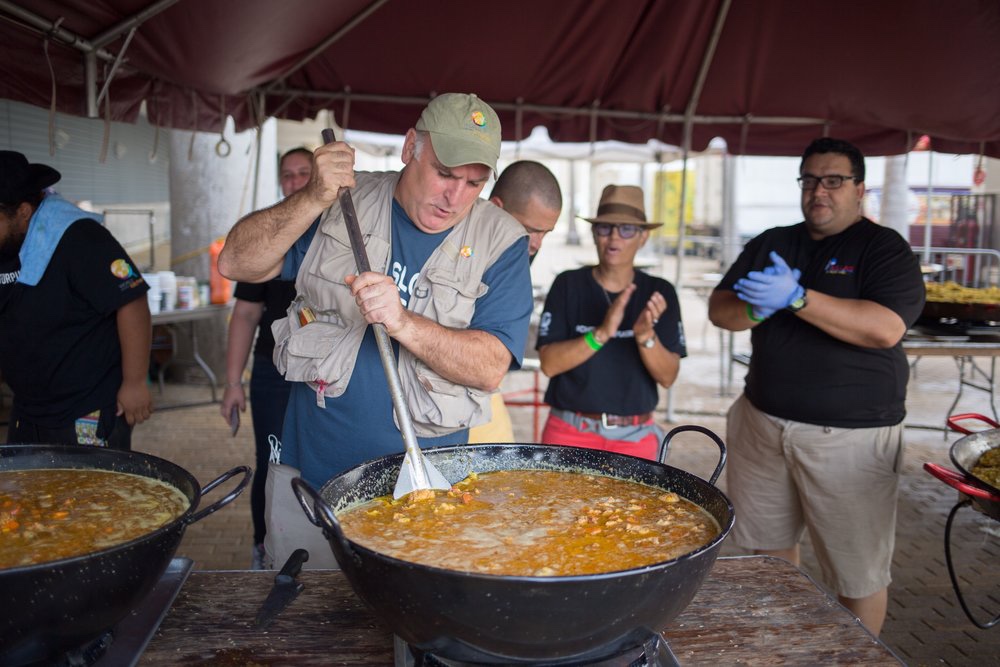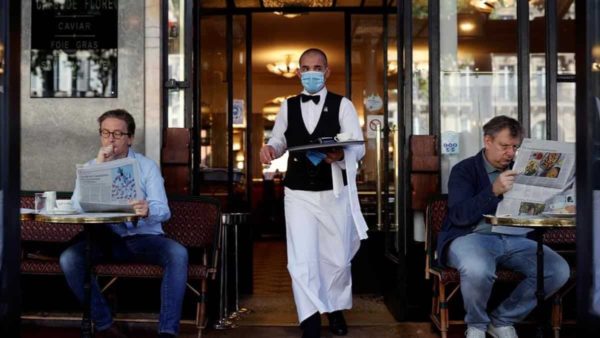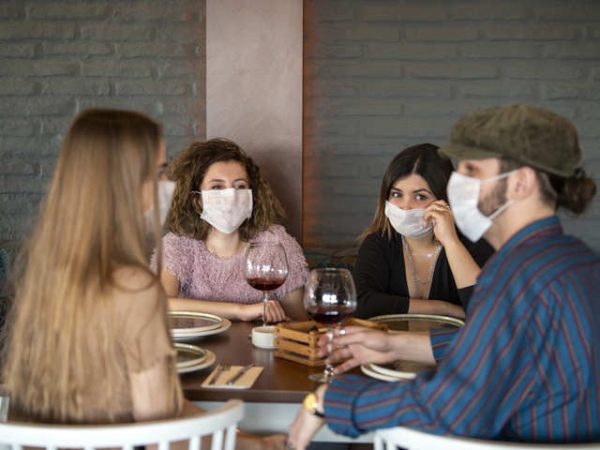Food and politics have always been inseparable. The writer Alicia Kennedy addressed the topic recently in her weekly newsletter, in which she questions what people mean when they say “food is political.” In her essay, she astutely points out that the phrase is really “a false shorthand for social justice” and reminds us that our ideas about the relationship between food and politics are often more vague than they should be.
Chefs haven’t historically been outspoken about government policies that don’t directly affect their bottom line. But recent calls for social justice have spurred many chefs to speak out about their political beliefs with a greater sense of urgency. Chefs who use their platform to speak critically of government or be vocal advocates for social movements like Black Lives Matter are relentlessly trolled on social media with tropes like “shut up and cook” or “go back to the kitchen.” It’s hard to imagine those same people telling lawyers to “stick to torts” or surgeons to “go back to the E.R.”
Restaurant workers are accustomed to being on the receiving end of opinions rather than issuing them. It’s a hazard of the job. If a guest says a dish is overcooked, we are conditioned to genuflect because the truth doesn’t matter. Handling difficult guests in restaurants requires diplomacy at every turn. If you want to survive working in a restaurant, you must learn to become a politician.
To be fair, chefs are not necessarily the ideal couriers for sociopolitical messaging. The restaurant world has only recently begun grappling with its own checkered past. The downfall of once respected chefs like Mario Batali and John Besh or restaurateurs like Thomas Carter and Ken Friedman initiated a long overdue reckoning. But excommunicating the bad actors has felt like flushing a horribly clogged toilet where you pray that it doesn’t back up and flood the bathroom floor.
We’re accustomed to stepping in our own shit in the restaurant business, but these sweeping social movements like #MeToo and Black Lives Matter have turned out to be powerful disinfectants. Challenging the misogyny and racial bias endemic to restaurants has brought about politically-charged conversations within the industry that would’ve been unthinkable even ten years ago.
In an interview published in Food & Wine from 2017, Anthony Bourdain said, “There’s nothing more political than food. Who eats? Who doesn’t? Why do people cook what they cook? It is always the end or a part of a long story, often a painful one.” It’s hard to tell if what’s happening now is only part of the story or the end, but political decisions are impacting the viability of the restaurant business in ways that even Bourdain could never have predicted.
The Coronavirus pandemic has devastated restaurants, but it has also resulted in a groundswell of activism and community organizing. After being furloughed from her position as the pastry chef of Kith/Kin in Washington D.C., Chef Paola Velez launched Bakers Against Racism to raise funds for organizations that fight for change against systemic and structural racism.
In Oakland, Chef Reem Assil turned her newly-opened restaurant into a community kitchen when lockdowns made normal operation impossible. Prior to opening restaurants, Assil was a community organizer and political activist for many years. Realizing that her restaurants couldn’t survive solely on take-out business, she transformed her kitchen space into a commissary that has produced over 1,800 meals for frontline workers, low-income residents and the homeless every week.

Chefs were already embracing this brand of activism before the pandemic started. Jessamyn Rodriguez, who began her career as a baker, wasn’t thinking about politics when she created the Hot Bread Kitchen in 2007. “I never really called myself an activist when I started Hot Bread Kitchen—I never felt it was particularly political,” she told the James Beard Foundation in a 2018 interview, “But as the tides turn in this country and it’s gotten more xenophobic and more racist, the work has not changed, but it has become more relevant, and more political.” She envisioned a place where women with diverse backgrounds would come together and secure employment in the food industry.
Empowering people through food has always been at the heart of Chef José Andrés’s work. His organization, World Central Kitchen, has deployed volunteers across the globe to fight hunger and to provide emergency assistance to communities affected by natural disasters. In anticipation of the election, Andrés and his staff set up canteens near polling places around the country to provide free food and beverages to voters waiting in long lines for early voting. He’s done more for our democracy than most of our political leaders.
Other prominent chefs have fought aggressively for a seat at the table. The Independent Restaurant Coalition—a collective that includes notable chefs like Tom Colicchio, Nancy Silverton, Kwame Onwuachi, Nina Compton and others—has lent its voice in support of the bipartisan RESTAURANTS Act, legislation that would offer financial support to struggling independent restaurants. Stalled negotiations have sandbagged the bill’s advancement in Congress, but in a climate that favors corporate interests these chefs have helped to give voice to the voiceless.
For whatever reason, a segment of the population is triggered by restaurant workers having strong opinions. Prior to her career in politics, Congresswoman Alexandria Ocasio-Cortez famously worked for many years as a waitress and bartender, an indelible part of her personal narrative and political purview. At 28 years old, she became the youngest representative ever to be elected to serve in Congress. In spite of her achievements, her critics regularly refer to her career in hospitality pejoratively.
When critics malign opinionated chefs, there’s an implication that working in a restaurant makes them underqualified to opine. It’s easy to draw a direct line from the disrespect directed at outspoken chefs to our nation’s rudderless food and farming policies. Chefs understand more profoundly how our voting decisions affect the quality of the food we eat and its sustainability. Food is a public health issue, no different from the Coronavirus, and we need to start trusting chefs as reliable ambassadors of how to eat, live, and even govern well. Instead of telling them to shut up and cook, maybe it’s time that all of us shut up and listen.




